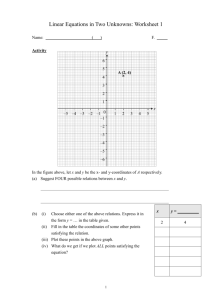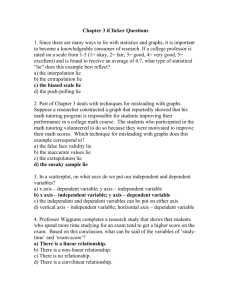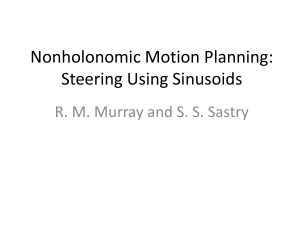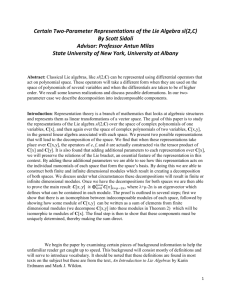Australian Workplace Culture File
advertisement
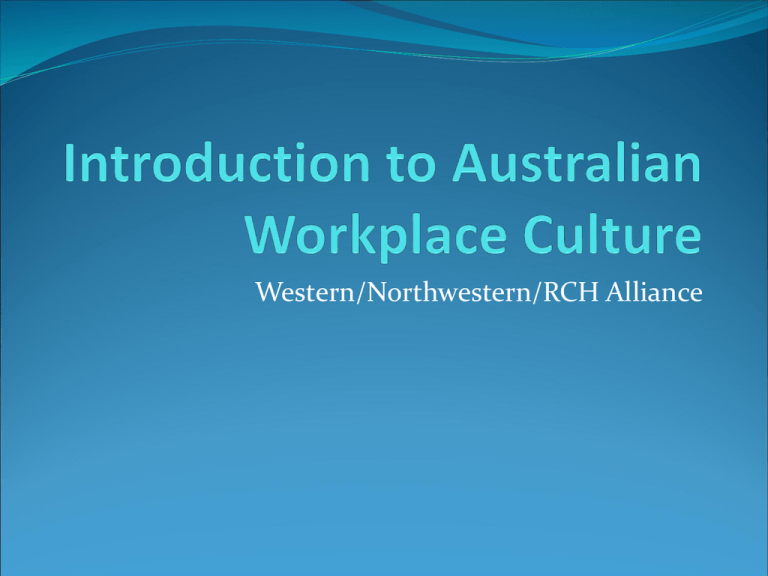
Western/Northwestern/RCH Alliance Aims Be aware of the importance of culture Be able to identify cultural barriers to communication Learn strategies to overcome these barriers Develop “cultural competence” Culture A pattern of ideas, rules, values, beliefs, habits Acquired through interactions with people Influenced by age, gender, family, economic status, personality, experience, career, etc Provide a value system Dynamic: evolving over time Difficult to define! Cultural Awareness The ability to recognize your own cultural values, and those of other cultures Being respectful and open-minded Avoidance of stereotyping Sensitivity to culturally-specific needs Note: awareness can be a passive process Cultural Competence The ability to maintain positive outcomes in cross- cultural encounters It is an active process Requires attitude, knowledge and experience Difficulties It is normal to feel stressed, overwhelmed, misunderstood, or threatened when facing people from an unfamiliar culture Things which seem logical to them will make no sense to you You may find yourself being stereotyped, or be tempted to stereotype them Culture is complex Cultural Dimensions All cultures lie between these two extremes of value Individualism Equality Gender indifference Shades of grey Short-term values Collectivism Hierarchy Gender differentiation Black and white Long-term values Individualism versus Collectivism Individualism Collectivism Privacy Loyalty Rights Friendliness Personal Responsibility Part of a group Personal choice Social obligations Where does Australia lie on this cultural dimension? Where does your own culture lie? Power Distance Equality Hierarchy Social welfare Unequal distribution of Socialising is casual, lack of wealth, status and power Rigid rules governing social behaviour rules Equal rights for all groups Where does Australia lie on this cultural dimension? Where does your own culture lie? Gender Differentiation Male / Female Distinction Gender Indifference • Men and women take on Men and women are seen as different, and noninterchangeable roles • Affects clothing, language, behaviours, sometimes rights equivalent in terms of roles they can take on Gender does not define how you behave Where does Australia lie on this cultural dimension? Where does your own culture lie? Tolerance for Uncertainty Black and White Shades of Grey Belief in absolutes No ultimate truth Rules and regulations Anarchistic Risk avoidance Risk taking Often single viewpoint Multiple perspectives Where does Australia lie on this cultural dimension? Where does your own culture lie? Time frame Short-term values Long-term orientation Rapidly changing Tradition and stability Innovations Dislike of change Today’s problems are more Conservative important than those in 50 years’ time Makes sacrifices for long- term gain Where does Australia lie on this cultural dimension? Where does your own culture lie? Australian Culture/Communication Verbal communication Direct, to the point Brevity versus decoration Interrupting a speaker Difference of opinion Use of humour Emotions Australian Culture/Communication Non-verbal communication Facial expression Eye contact Gestures Touch and personal space Degree of emotion Australian Culture/Communication Written Communication Logical Linear Comprehensive Australian Culture / Sense of Time Monochronic time sense Strictly punctual Attention is given to the current task Interruptions are avoided Polychronic time sense Timetables and schedules are less important than other obligations Australian Culture / Approach to Illness and Death Denial of illness and death Much effort spent on avoiding it Lack of acceptance of one’s “fate” Australian Culture / Legal Issues in the Workplace Equal opportunity Multiculturalism Consent Confidentiality Boundaries to sexual advances Formal complaints procedure Specific Issues for doctors working in Australia Alcohol Sexuality - attitudes and behaviours Aboriginal health Mental health Ageing and community care Your Input What have you experienced? Problems with cross-cultural encounters? Misunderstanding or being misunderstood? Surprising elements of Australian culture? Stereotyping or pre-formed opinions? Interesting differences between cultures?
